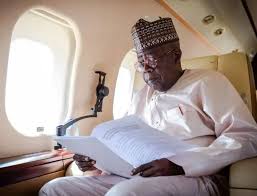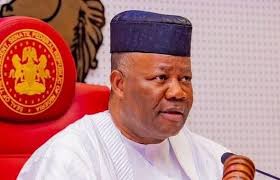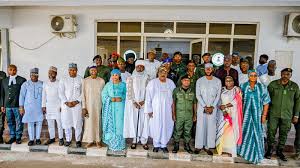2025: FG unveils industrialisation strategies, to conduct MSMEs census

As a component of its industrial transformation and economic growth strategy, the Federal Ministry of Industry, Trade, and Investment (FMITI) is set to carry out a national census aimed at establishing a data-driven roadmap for empowering micro, small and medium enterprises (MSMEs) in 2025.
MSMEsThis was revealed in the ministry’s 2025 outlook document which listed the top priorities for the upcoming year titled, ‘Accelerating Diversification to Rebuild Prosperity by Leveraging Industry, Trade & Investment’, signed by the Minister of Industry, Trade, and Investment, Dr Jumoke Oduwole and the Minister of State, Senator John Enoh.
The census, according to the document, is an essential step in conducting a nationwide census to establish a precise, data-driven roadmap for empowering MSMEs.
“The ministry will conduct a nationwide census to establish a precise, data-driven roadmap for empowering Micro, Small, and Medium Enterprises (MSMEs) and a high-level task force focused on implementing industrial reforms and reengineering the Nigeria Industrial Revolution Plan (NIRP), aiming to create a modernised blueprint for sustainable industrialisation,” the document stated.
Oduwole defined 2025 as a critical year for the nation to diversify its economy, promising quantifiable results through strategic initiatives and policy changes.
According to her, the ministry will concentrate on three crucial areas – investment mobilisation, trade revenue growth, and economic diversification.
“As a ministry, we prioritize creating a dynamic, resilient, and sustainable economy by positioning the private sector for productivity and competitiveness and enabling businesses to take full advantage of the vast opportunities available in domestic, regional, and global markets.
“We have repositioned ourselves to deliver empirically verifiable policies and reforms based on transparently laid down, which improved FMITI’s Performance significantly in the last quarter of 2024.
“We are building an economy that attracts abundant investment from across the world, fosters industrial transformation, and facilitates trade in exports to generate productive jobs for Nigerians across the country.
“In 2025, to accelerate diversification and rebuild prosperity, FMITI will deliver a more enabled environment through good regulation and development policies and the expansion of trade and investment across three broad areas: Economic diversification to accelerate through industrialisation, digitisation, creative arts, manufacturing and innovation; Trade revenue growth to boost export and foreign exchange earnings; and investment mobilisation aimed at increasing investment retention and attraction,” Oduwole state
The key priorities for the ministry in 2025, according to the document, are: “Unlocking the full potential of the automotive sector by accelerating local manufacturing and fostering world-class supply chains; Expanding value addition in agriculture to position Nigeria as a global powerhouse in agro-industrial production; Revitalizing the Cotton, Textile, and Garments (CTG) ecosystem to enhance domestic production, drive exports, and create millions of jobs; Advancing Nigeria’s industrial self-sufficiency through strategic investments in pharmaceuticals, medical devices, and petrochemical industries; Conducting a nationwide census to establish a precise, data-driven roadmap for empowering Micro, Small, and Medium Enterprises (MSMEs); and setting up a high-level task force focused on implementing these industrial reforms and reengineering the Nigeria Industrial Revolution Plan (NIRP), aiming to create a modernized blueprint for sustainable industrialisation.”
In his comment, Enoh stated: “We will also drive the revitalisation of existing industries, ensuring they remain vibrant players in an increasingly competitive world.”
To make these goals a reality, he said the ministry will engage extensively with key stakeholders across sectors, fostering strategic partnerships, collaboration, and rigorous monitoring and evaluation of industrial projects.






